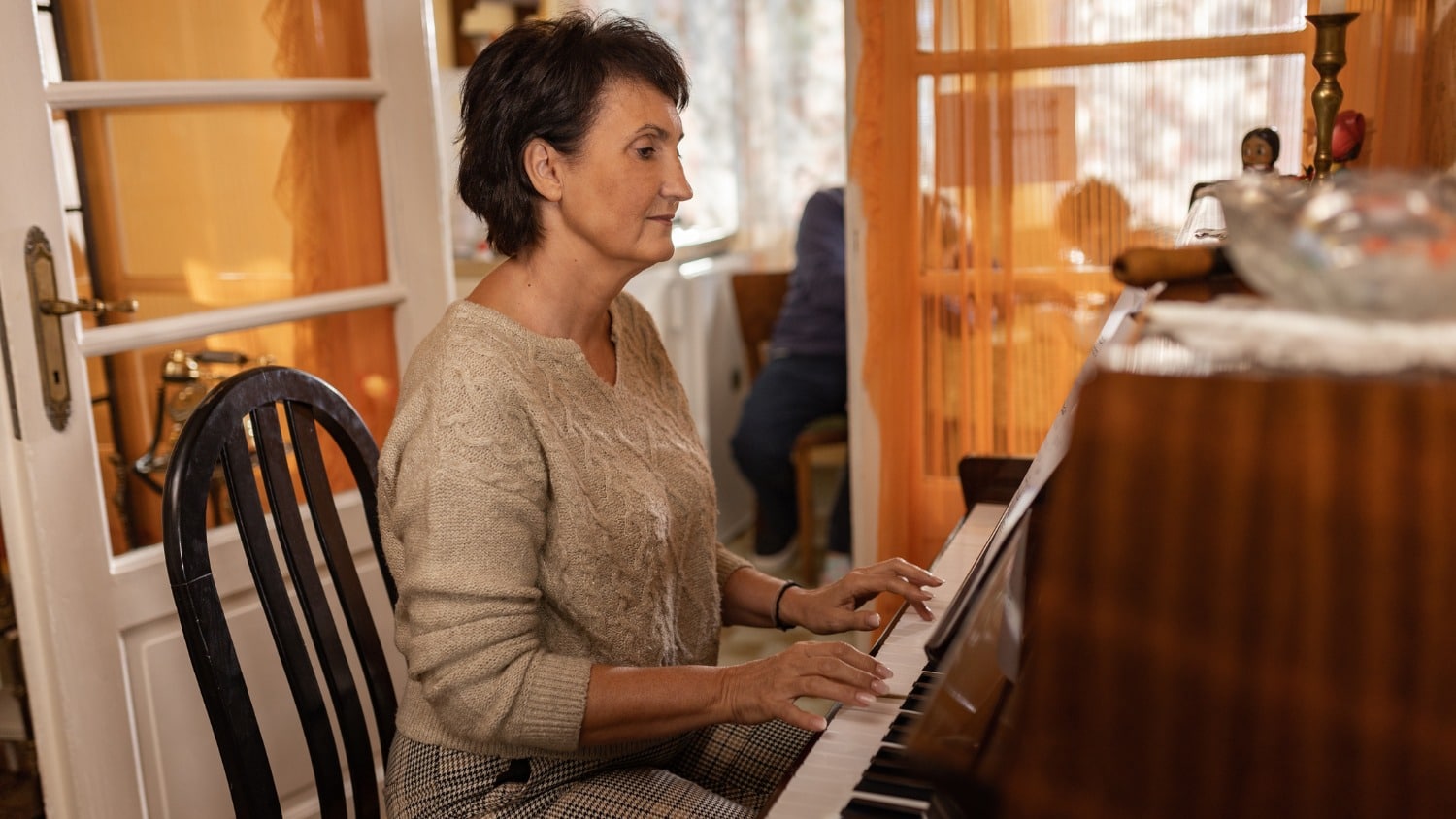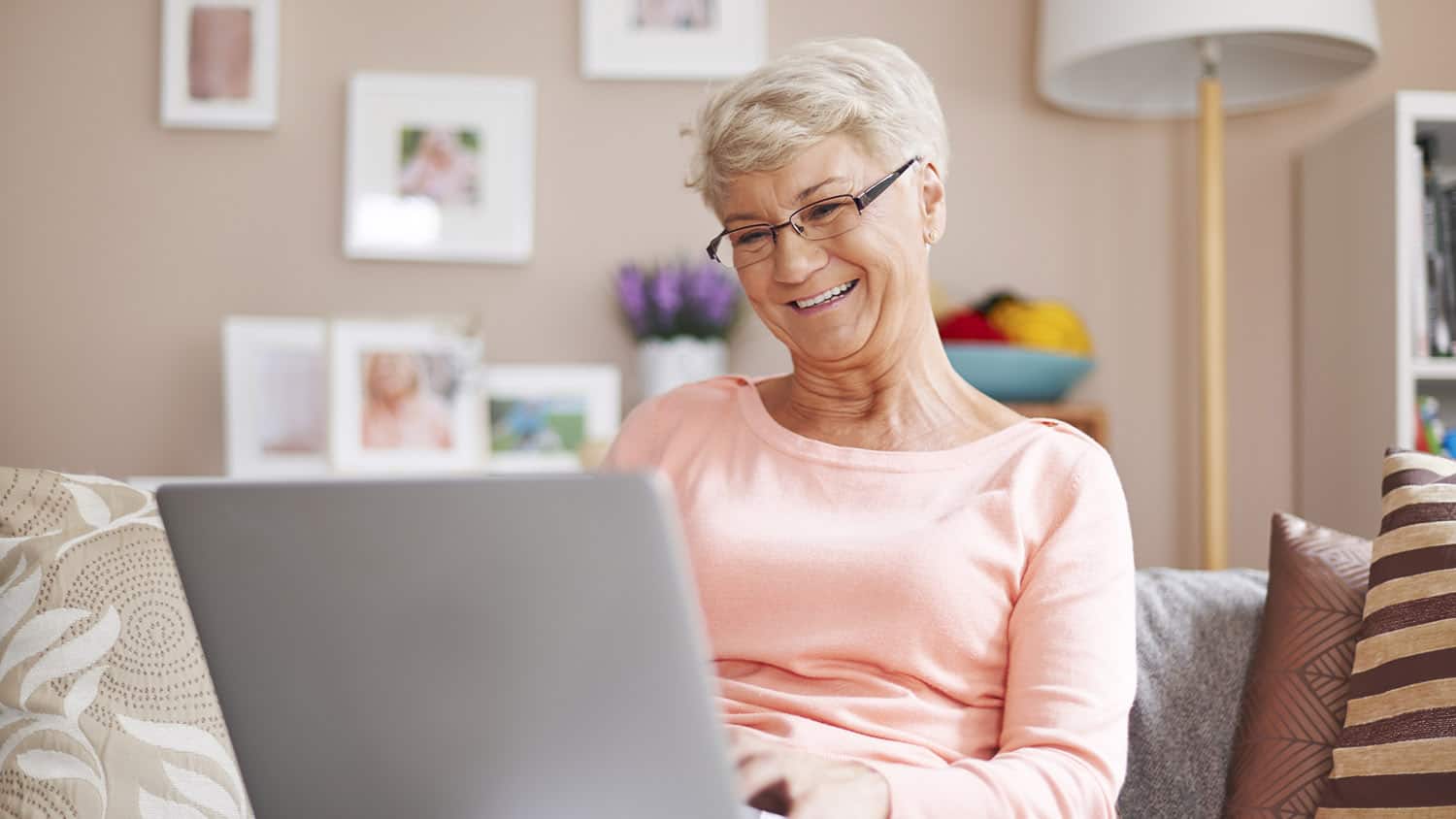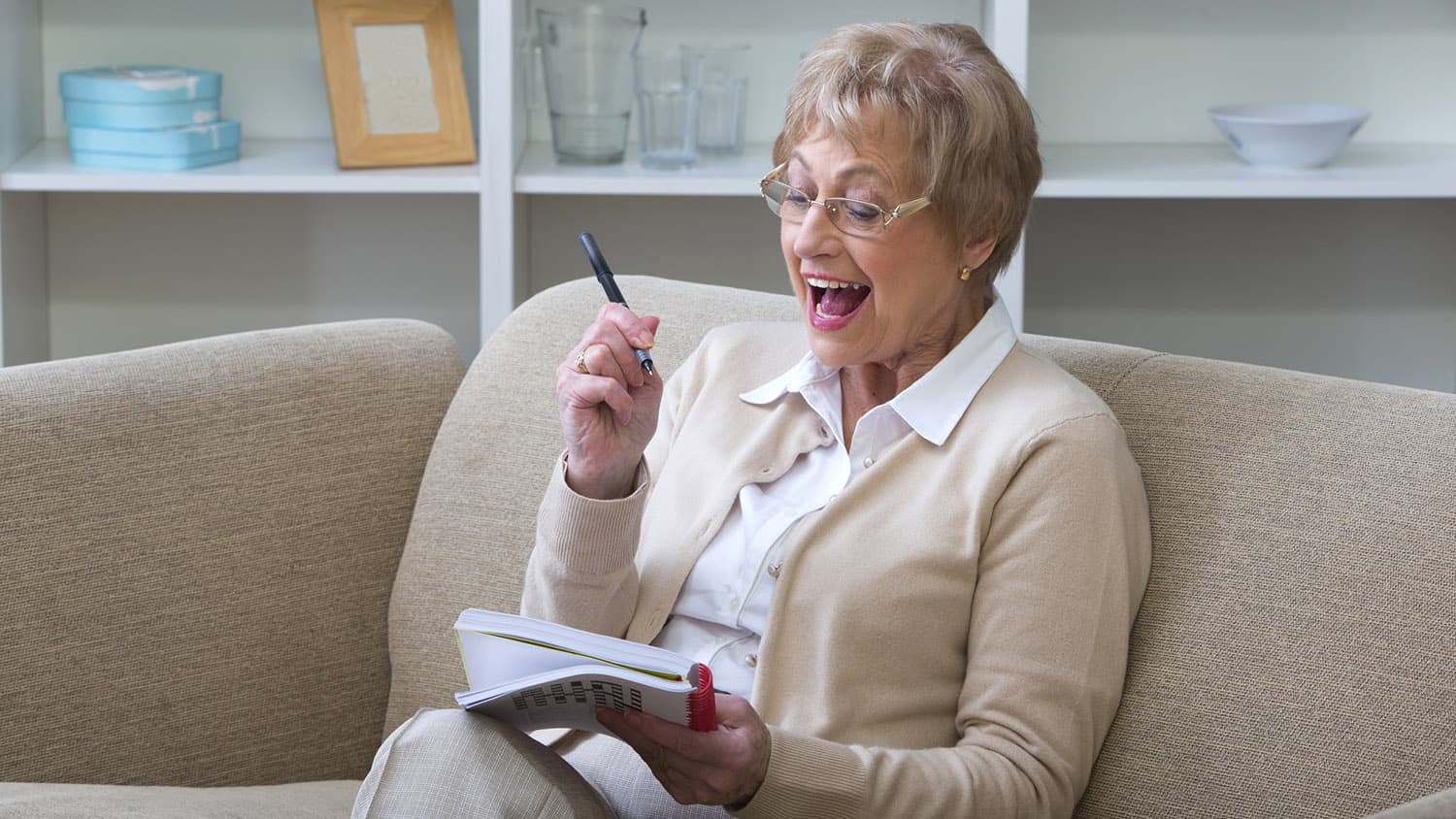
Is 2023 Your Year to Start Playing the Piano?
Have you always wanted to learn how to play the piano, or regretted quitting piano lessons as a child? Perhaps you have been hesitating because, with the threat of Covid, you are uncomfortable with the idea of going into a piano teacher’s home?
Maybe you have heard that learning to play a musical instrument keeps your brain sharp, but you have felt too intimidated to start? If any of these are true for you, 2023 could be the year that you make your musical dreams come true.
My name is Gaili Schoen, and I will gladly take you through a set of free video piano lessons on Sixty and Me starting this January! I have been teaching piano privately for 35 years, and I am so excited to offer these video lessons to the Sixty and Me community!
Yes, research shows that learning an instrument is the very best way to boost brain health, and playing the piano is just so fun! Most people also find practicing to be calming and therapeutic. Most of us love the music from our youth, and being able to play our favorite songs on the piano feels amazing.
Here are some questions you might have:
What Kind of Music Will We Be Learning?
You will learn the skills that will enable you to play all types of western music: classical, popular, rock, jazz standards, blues, rap, country, folk, soul… you name it!
What Will I Need to Start?
A Piano or Keyboard
If you don’t have a piano or keyboard, you will need to get one. Put the word out that you are looking, and you might find a friend or family member willing to lend or give you theirs. You can also buy a used one on Craigslist, Ebay, or Facebook Marketplace. If you want to buy a new keyboard, here are my recommendations.
Piano Lessons Book
After trying out the first couple of lessons, for which you will receive all needed materials, if you want to continue, you’ll need a copy of the Upper Hands Piano book. You’ll hear more about that on the video below, and you can take a look at some sample pages at UpperHandsPiano.com.
Page Holder
There is also a gadget called a Page Holder that helps keep music sheet books open. Large clips work too, if you have some handy.
Is It Ok to Learn on a Keyboard?
Yes, it’s fine to learn on a keyboard, as long as the keys are full-sized, touch-sensitive and weighted or semi-weighted, to feel like a piano. You need a minimum of 61 keys, but 73, 76 or 88 would be better.
Am I Too Old to Start Piano Lessons?
No! Older adults have learned many concepts (applicable to music) that have become intuitive to them, which are not yet intuitive to children, such as knowing the first 7 letters of the alphabet (ABCDEFG) forward and backward, and the various combinations of numbers that add up to four (3+1, 2+2, etc.).
Most importantly, mature adults have listened to music for many years, and musical experience helps guide the ear in playing melodies and rhythms.
How Much Time Do I Need to Practice?
Short daily piano sessions are much more effective than one long weekly session. If you can begin with just 10 minutes, 4 days per week, you will make progress.
How Are These Video Piano Lessons Unique?
My method applies the latest information about how mature adults think and learn, to get you playing the piano as quickly and easily as possible. The Upper Hands Piano book uses cognitive tools such as mnemonics and brain games, and features larger type and notes.
You learn all the basic chords right away (which is something you won’t find in any other piano method), so that you can play songs with chords quickly. I also offer lots of encouragement. No guilt or expectations, just motivation and support!
Why Are Piano Lessons So Great for the Brain?
Involve Multiple Senses
Playing the piano is a multi-sensory experience; it integrates the visual (reading), auditory (listening) and tactile (touching) senses, with spatial and rhythmic awareness, and a full range of emotions. Multi-sensory activities are the best way to enhance brain plasticity, meaning that they can increase the number and vitality of brain cells and neural connections.
Improve Memory and Concentration
Taking piano lessons improves memory and concentration, expands psychomotor coordination (fine motor skills controlled by the brain), helps to organize thoughts, makes the brain operate better and faster, and can raise the IQ.
Engage Both Brain Halves
Unlike other instrumentalists and vocalists, piano players read multiple notes for two hands, which is an incredible brain workout!
Reduce Stress
Music is a proven stress-reducer, which is significant because stress can damage and kill brain cells. Listening to music chemically triggers a wonderful sense of well-being and is known to reduce physical pain, to lift or prevent depression, and to enhance the benefits of exercise. Some also play the piano as stroke rehabilitation, or to ease the stiffness of arthritis.
Watch my video to learn more, and to get an idea of what piano lessons with me will feel like.
Thanks for watching, and I hope you decide to learn along.
Let’s Have a Conversation:
Have you thought about learning to play the piano in 2023? If you already play, what can you tell us about the benefits you have noticed to your brain health and stress levels?
Tags Creativity







Happy almost 2024! I have been thinking about getting a piano and lessons to pick up where I left off 60 years ago. The piano came yesterday. How do I access the early lessons?
Wow that’s fantastic! You can access all the lessons on my Author page. Just make your way through the lessons in order. You’ll start with page 3: https://sixtyandme.com/author/gaili-schoen/page/3/
Scroll down to the bottom and start with Lesson 1, etc. The lessons were set up for every 2 weeks, but you can move at your own pace- faster or slower as need be. Feel free to post questions and keep us posted on your progress! Happy New Year Linda. -Gaili
What a wonderful generous idea to offer these lessons to 60 and Me readers. I started taking lessons at age 71. It’s not always easy, especially when you’re trying to make your left hand do something different than your right hand, but with practice, you keep getting better. It’s a wonderful feeling to be able to play one of your favorite songs, and to discover you can vary the feeling that song just by the use of dynamics. Sometimes it’s hard to actually sit down to the piano, but once I’m there I can lose all track of time. Well worth the initial struggle of getting to know this beautiful instrument, the piano.